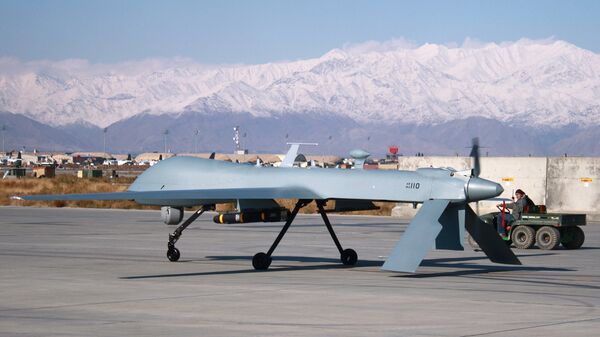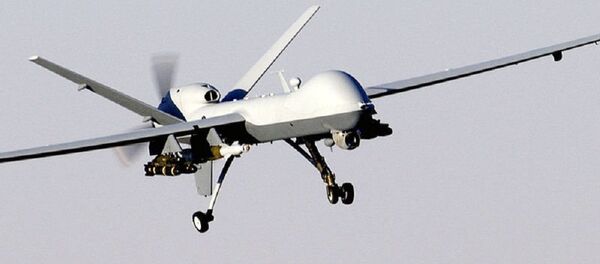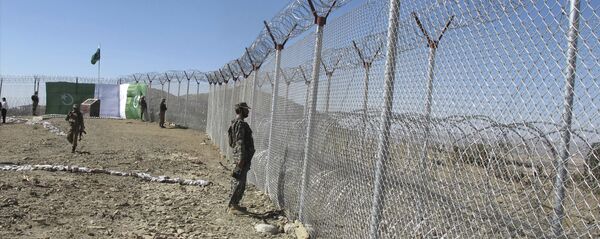US missile strikes that landed on the Taliban camp in Afghanistan's Paktika Province last week are believed to have eliminated Taliban leader Khalid Mehsud. "We confirm that deputy head of the TTP, Khalid Mehsud, died in a drone strike," a spokesman told Reuters. The event marks the end of a three-year manhunt by the US, according to the Long War Journal.
US intelligence officials monitoring TTP and al-Qaeda told Long Wars Journal that the deputy was a "close ally of al-Qaeda up until his death."
In Mehsud's place the Pakistani Taliban has appointed a commander known as Mufti Noor Wali Wali.
The Pakistani Taliban has been accused of committing terrorist attacks against the Pakistani government and military. Islamabad has also alleged that the TTP is supported by India's external espionage and intelligence agency, the Research and Analysis Wing (RAW). Last April, former TTP spokesman Ehsanullah Ehsan disclosed that the TTP had "established and developed connections with India and RAW," Pakistan Today reported.
The US has accused the Pakistani government of providing a safe haven for terrorists, which "continues to allow the Afghan Taliban [to be based in areas of] western Pakistan and to use the territory as a springboard for attacking the US-backed government across the border in Afghanistan," Brian Williams, a professor at the University of Massachusetts, told Sputnik.
In January, US President Donald Trump suspended millions of dollars in security assistance to the Pakistani military after alleging that "the United States has foolishly given Pakistan more than $33 billion in aid over the last 15 years and they have given us nothing but lies & deceit, thinking of our leaders as fools."
Last week, US Deputy Secretary of State John Sullivan said Washington "may consider" lifting the suspension if Islamabad starts to target "all terrorist groups operating within its territory without discrimination," while adding that the US side has yet to see evidence of progress.
On February 11, Maj. Gen. Asif Ghafoor, official spokesman of Pakistan's Armed Forces, told Sputnik: "Pakistan is a stakeholder for peace in the region, but cannot fight another Afghan war inside Pakistan. We would like the US to succeed in Afghanistan, but Pakistan shouldn't be scapegoated for not achieving it."
Pakistan is building a border fence on the Afghan-Pakistan border with the intention of suppressing terrorism. Pakistan Foreign Minister Khawaja Muhammad Asif recently suggested that US President Donald Trump help pay for the fence. "It won't cost them much more," Asif told Bloomberg. "The war is costing them much more."




